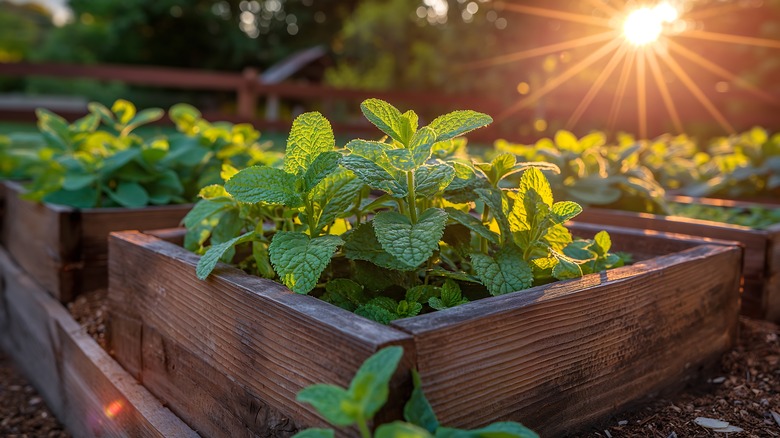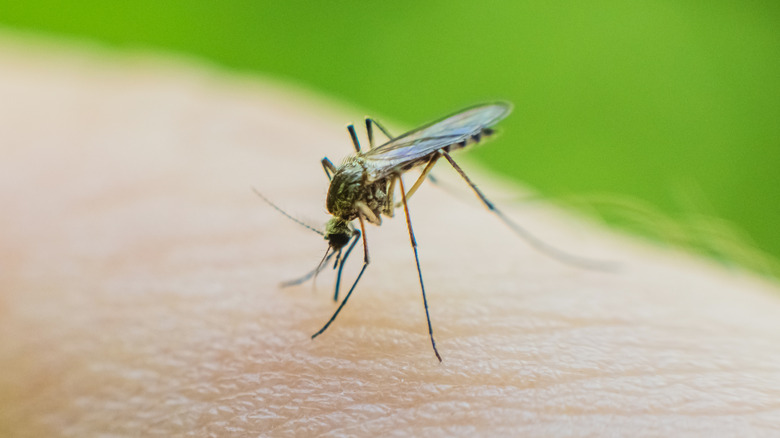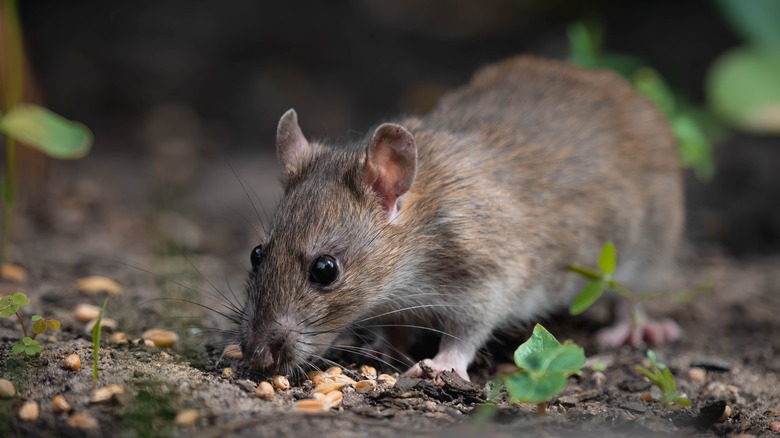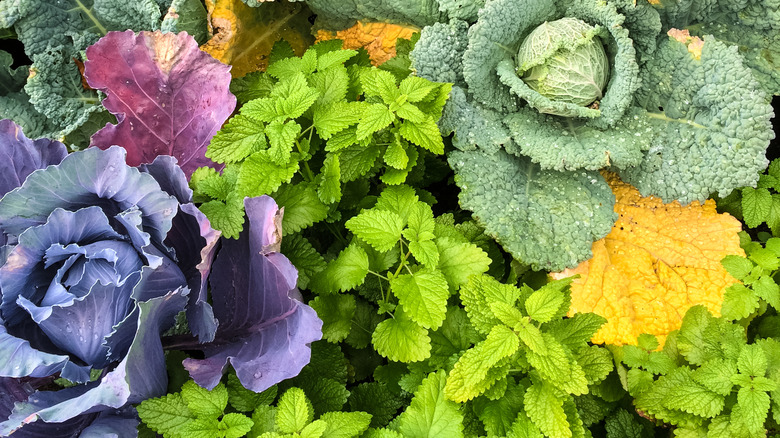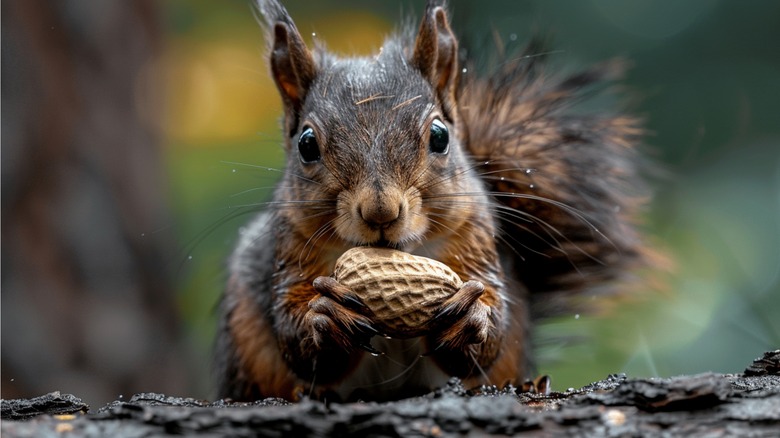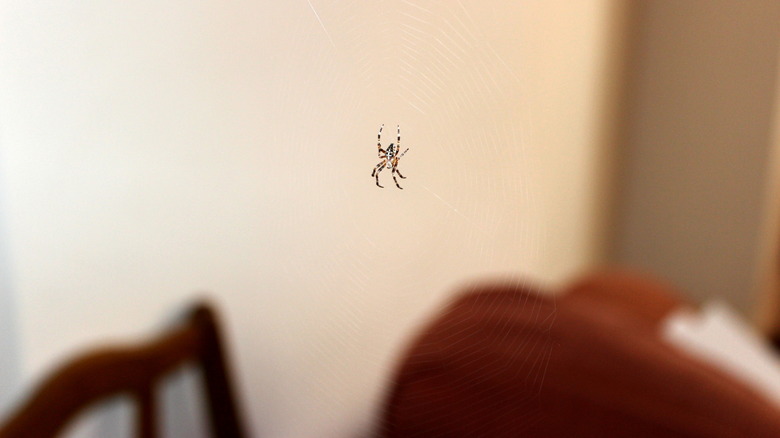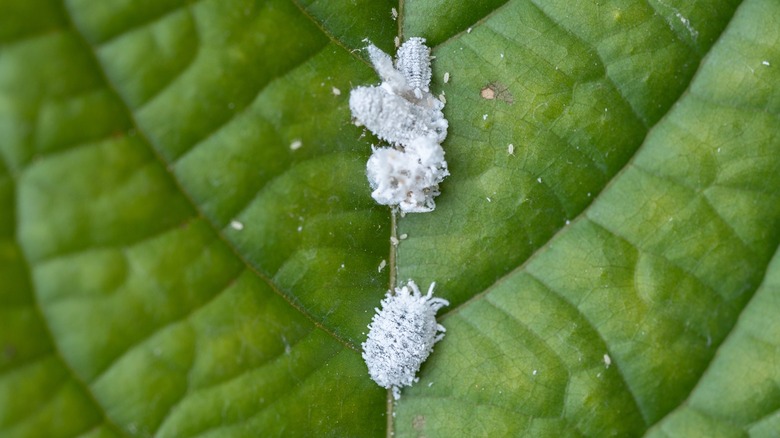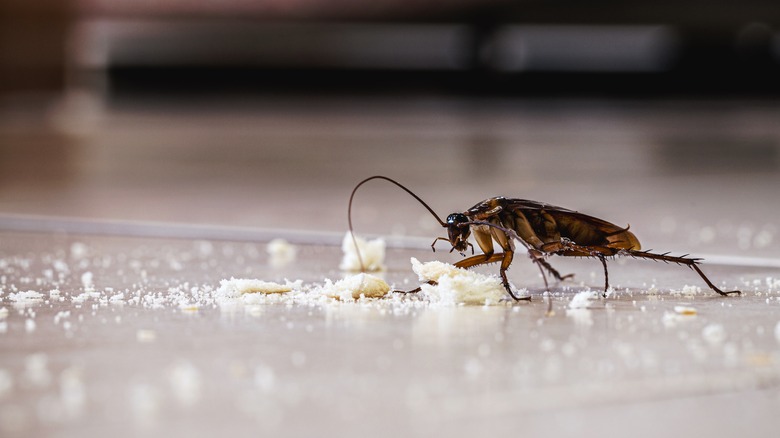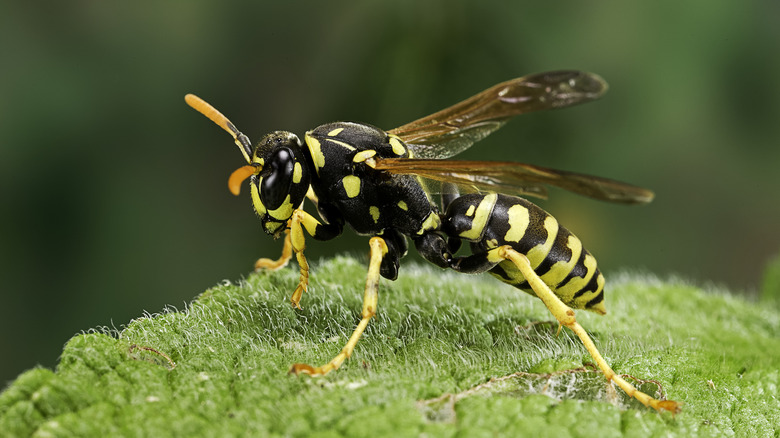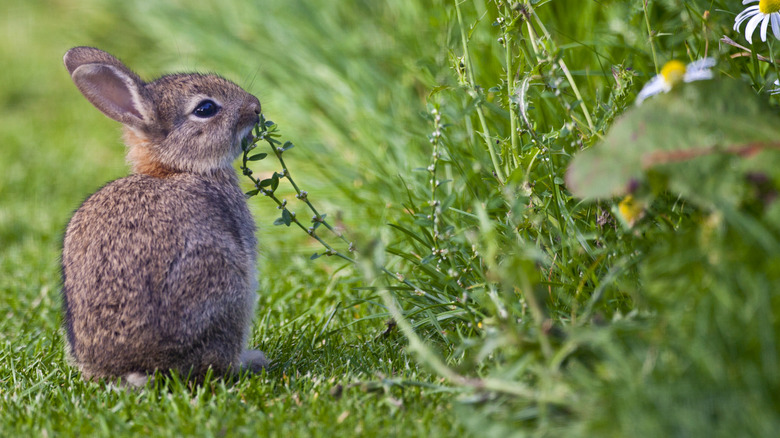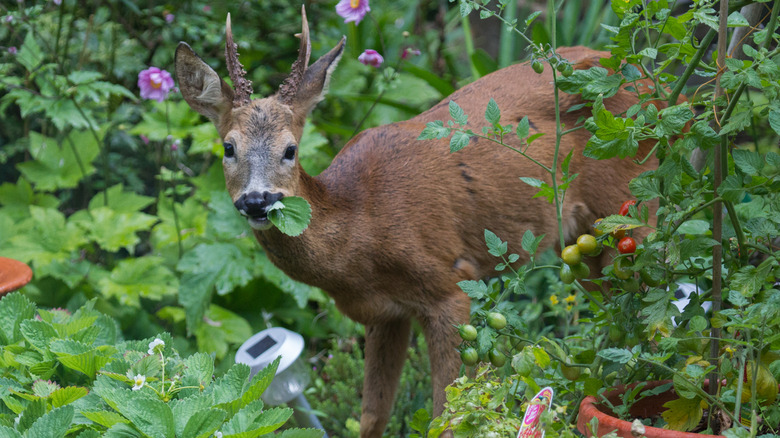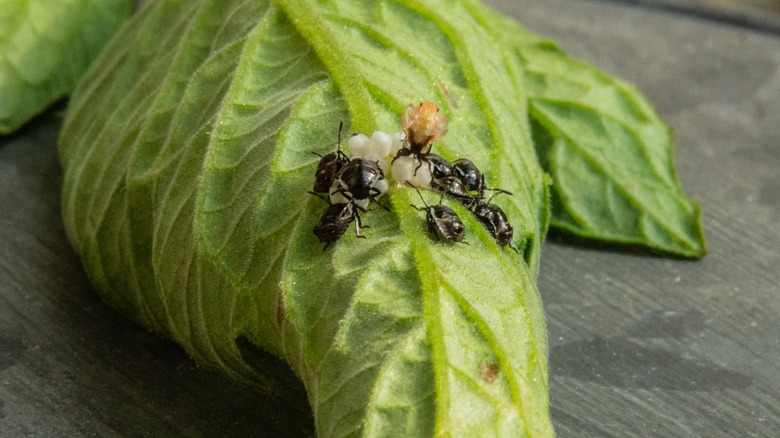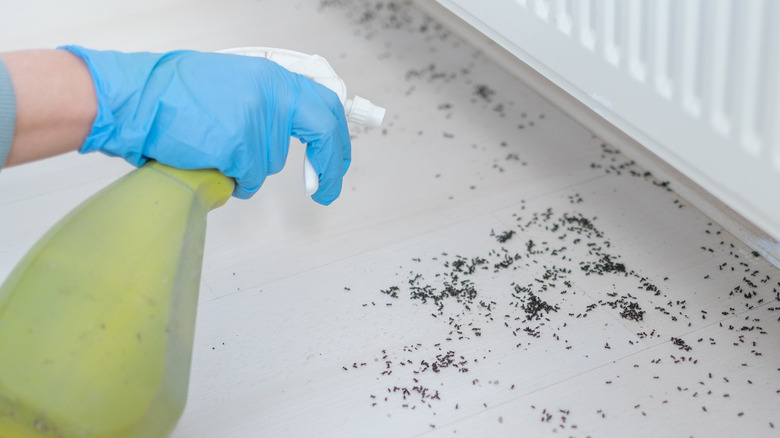12 Pests This Minty Ingredient Will Keep Out Of Your Home And Garden
Tired of dealing with pesky pests in your home and garden? Join the club. Unfortunately, pests such as ants, mosquitoes, mice, and squirrels are all too frequently causing problems for people who want to enjoy their outdoor and indoor spaces. You might think a natural and simple solution sounds too good to be true, but mint has been proven in numerous studies to work as an effective deterrent against a range of common pests. If you have mint oil in your cupboard, you could put it to good use as a natural pest spray or consider cultivating this popular and easy-to-grow herb instead.
Though commercial pest repellents might yield good results, it can be a worry to use these types of chemicals around children and pets. That's where mint comes in. Mint is an all-natural way of keeping pests at bay, and growing it requires minimal effort. You can grow mint plants from cuttings, or they are inexpensive and readily available to pick up from garden nurseries. As a versatile and low-maintenance herb, you can grow mint in just about any type of soil and in full sunlight to partial shade. It thrives in moist conditions and gives off a refreshing and pleasant scent. As a bonus, mint can be used in a wide range of dishes in the kitchen.
Mosquitoes
Chemical mosquito repellents are associated with overpowering and unpleasant scents; swap them for mint, which works as a mosquito-fighting secret weapon for keeping them away from your garden seating areas. As a natural insecticide, mint is also ideal for use around children or sensitive members of the family. Grow pots of spearmint or peppermint on your outdoor dining table or around the edge of your patio to discourage these pesky bloodsuckers from joining you. Peppermint oil can kill mosquito larvae, so spray this directly onto any mosquito nests you may find in your yard.
Rats and mice
These annoying rodents can wreak havoc if they get into your home, so make sure they don't want to become your uninvited roommates using mint. This refreshing herb naturally repels mice and rats from your home and garden because they cannot stand the smell. In the olden days, sprigs of mint were strewn across the floor in granaries to keep rodents away from the grain products. Instead of tripping over mint cuttings in your house, grow herb pots on windowsills or use mint spray products every few weeks.
Cabbage moths
Are cabbage moths causing chaos on your crops? Companion planting with mint is an easy and natural solution. Rick Snyder, horticulturist with Mississippi State University's Extension Service, says, "In small organic gardens, use of companion plants can eliminate the need for chemical pesticides. Most companion plants are those with volatile odors." Snyder advises planting mint alongside cabbage crops to deter cabbage moths because these annoying insects don't like the smell.
Squirrels
If squirrels are feasting on your precious plants, try using a homemade mixture containing peppermint oil. This herb can help you keep squirrels from making a home in your yard because the strong scent deters the furry rodents. Fill a spray bottle with apple cider vinegar and a few drops of natural peppermint oil, then spray it around your garden where squirrels have been spotted. It can be sprayed directly onto plants without causing any harm, as well as onto solid surfaces like decking and planters.
Spiders
Though most of us enjoy the sensation of a fresh breeze coming through an open window, few are keen on the spiders that sneak in at the same time. To deter spiders from entering your home, mint is incredibly effective. Mix peppermint oil drops with water and spray the solution around cracks and crevices where spiders might gain access, such as baseboards. You can also grow pots of mint on your window sills to stop spiders from being tempted to cross your threshold.
Mealybugs
Mealybug infestations on houseplants are a drag, but this minty scent is all you need to kick mealybugs to the curb. Tiffany Selvey, House Digest's master gardener, explains, "This minty herb works to repel mealybugs because of its strong aroma. What to us smells bright and clean is an unpleasant pungent odor to many pests." Selvey recommends mixing 10 drops of peppermint oil with 3 ounces of water together in a spray bottle, giving it a hard shake, then soaking your entire plants with the mixture.
Cockroaches
A study published by Auburn University found that mint oil successfully repels American and German cockroaches, with menthone being the main active component. You can keep this tasty herb in the house to help keep cockroaches out simply by growing it in your kitchen. Mint not only works as a cockroach deterrent, but it's also a wonderful addition to many culinary dishes like salads and soups. If you're not particularly green-fingered, you could instead try mint-based sprays to keep cockroaches away.
Wasps
Mint is a strong repellent against wasps, so if the winged stingers are an issue in your garden, grow mint plants in containers and position them to keep yellowjackets at bay. Alternatively, dilute mint oil with water and spray it around the problem areas. There is also anecdotal evidence of mint being used to kill wasps from Lynn Braband, an associate of integrated pest management at Cornell University. Braband told the U.S Environmental Protection Agency that she has successfully used mint oil to destroy wasps by spraying it at the entry hole of the nest.
Rabbits
Rabbits can be a real issue in the yard, especially if you're cultivating homegrown fruits and vegetables that will attract their attention. If you want to keep your plants free from their nibbling gnashers, it can be beneficial to plant mint alongside your garden plants. The smell of it is considered to be so unpleasant to rabbits that it could make them avoid your yard altogether. Interplant your mint with other edibles rabbits aren't too keen on, such as basil, leeks, onions, and asparagus.
Deer
If deer are damaging your plants and trees, you can send them on their way by using mint as a natural repellent. Casey Hentges, host of Oklahoma State University Agriculture's television program, Oklahoma Gardening, explains, "Deer don't like plants with strong smells. One way to keep deer from using the landscape as a snack bar is to plant lantana, chives, mint, and other strong-smelling herbs around those plants you've noticed deer prefer." Catmint is a perennial herb that works especially well for this purpose.
Flea beetles
Flea beetles can cause serious damage to plants if they find their way into your yard. They commonly feed on the foliage of leafy crops such as cabbages, leaving unsightly holes in the greenery. You can help to deter these pests naturally by planting varieties of mint alongside the plants they are drawn to. Spearmint and peppermint are both useful in repelling flea beetles but bear in mind that mint plants can become unruly when their roots are not contained in pots.
Ants
A study published by Cornell University found that a solution of 1% peppermint oil served as an effective repellent against Argentine ants for one week, helping to confirm anecdotal evidence that peppermint oil can be an effective repellent for ants in the home. You can create your own spray using peppermint oil and water, being sure to reapply it to target areas on a weekly basis. Alternatively, grow pots of the herb around your home and garden to deter ants from setting up camp.
